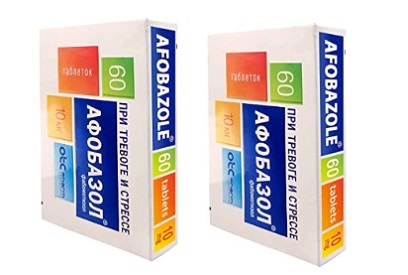Afobazole Can Prevent Respiratory Failure Caused by SARS-CoV-2 Attacking The Brainstem
Nikhil Prasad Fact checked by:Thailand Medical News Team Feb 22, 2025 2 months, 2 days, 11 hours, 44 minutes ago
Medical News: Understanding the Role of Afobazole in COVID-19 Treatment
Scientists from the University of Delhi South Campus in India have identified an existing anti-anxiety drug, Afobazole, as a promising candidate for inhibiting SARS-CoV-2, the virus responsible for COVID-19. The study reveals that the drug could potentially prevent respiratory failure in infected patients by disrupting a key molecular mechanism linked to severe complications.
 Afobazole Can Prevent Respiratory Failure Caused by SARS-CoV-2 Attacking The Brainstem
Afobazole Can Prevent Respiratory Failure Caused by SARS-CoV-2 Attacking The Brainstem
The research focuses on the pre-Bötzinger complex, a crucial part of the brainstem responsible for controlling breathing. In severe COVID-19 cases, patients experienced respiratory failure due to the virus attacking and mimicking specific proteins in this brainstem region. This
Medical News report highlights how scientists used molecular modeling, docking techniques, and molecular dynamics simulations to investigate drugs capable of interfering with this process.
Among the many drugs analyzed from the Broad Institute’s Drug Repurposing Hub, Afobazole demonstrated the most potential due to its strong interaction with the viral N-protein, a key component involved in viral RNA synthesis and genome packaging.
How Afobazole Disrupts SARS-CoV-2 and Protects the Brainstem
Researchers identified that SARS-CoV-2 mimics three key proteins in the brainstem - DAB1, AIFM, and SURF1 - which may lead to respiratory complications. Notably, the viral N-protein contained specific sequences mimicking these human proteins, raising concerns about autoimmune responses in infected individuals. This mimicry is believed to contribute to both respiratory failure and long-term neurological complications in some COVID-19 survivors.
To counteract this issue, scientists targeted a specific section of the viral N-protein, focusing on amino acid residues extending from position 168 to 185. This segment includes a short linear motif (SLiM) that plays a crucial role in molecular mimicry. Through advanced molecular docking and MD simulations, Afobazole emerged as the most promising candidate due to its high binding affinity (-88.21 kJ/mol) and stable interaction with the target site.
Beyond its ability to interfere with molecular mimicry, Afobazole was also found to disrupt the viral genome packaging process, potentially inhibiting the replication of SARS-CoV-2. These dual actions suggest that the drug could serve as a strong contender for repurposing in COVID-19 treatment, addressing both viral inhibition and respiratory protection.
The Background and Mechanism of Afobazole
Afobazole, also known as Fabomotizole, is an anxiolytic drug that has been widely used in Russia since the early 2000s. Unlike many other anti-anxiety medications, Afobazole does not produce sedative or muscle-relaxant effects, making it a unique treatment option. Though its exact mechanism of action remains unclear, researchers believe it influences multiple neural pathways, including GABAergic activity, sigma receptor
agonism, and serotonin modulation. Additionally, the drug has been shown to promote the release of neuroprotective factors such as NGF and BDNF, which contribute to brain health and recovery.
Experimental studies on animals have further supported Afobazole’s potential beyond anxiety relief. Research indicates that it possesses antimutagenic and antiteratogenic properties in mice, suggesting protective effects at the cellular level. In rat models, the drug demonstrated benefits in ischemic stroke conditions, highlighting its broader neuroprotective properties. However, despite its promising effects, Afobazole has not been widely adopted outside of Russia, nor has it received FDA approval for clinical use in the United States.
Study Conclusions and Future Implications
The findings from this study open new avenues for COVID-19 treatment by identifying Afobazole as a potential antiviral and neuroprotective agent. By targeting the viral N-protein, the drug effectively disrupts both molecular mimicry and viral genome packaging, offering a two-pronged approach to combating the disease. These results suggest that Afobazole could be repurposed to help patients suffering from severe COVID-19 complications, particularly those experiencing respiratory distress and neurological symptoms.
Another crucial takeaway from the study is the broader implication of molecular mimicry in viral infections. If other viruses employ similar mechanisms to hijack critical human proteins, the approach used in this research could be extended to identify drug candidates for a range of diseases. Given Afobazole’s established safety profile and minimal side effects, further clinical trials could provide valuable insights into its effectiveness against COVID-19 and potentially other viral infections with neurological impacts.
While the study presents promising in silico findings, additional laboratory and clinical investigations will be necessary to validate Afobazole’s effectiveness in real-world conditions. If successful, this could lead to the repurposing of an existing drug for pandemic response efforts, reducing the time and cost required to develop new treatments from scratch.
The study findings were published in the peer-reviewed journal: In Silico Pharmacology.
https://link.springer.com/article/10.1007/s40203-025-00316-6
For the latest COVID-19 News, keep on logging to Thailand
Medical News.
Read Also:
https://www.thailandmedical.news/news/russian-antiviral-drug-ingavirin-found-effective-against-human-metapneumovirus-insights-from-a-2012-study
https://www.thailandmedical.news/news/minocycline-helps-reduce-staphylococcus-aureus-induced-brain-inflammation-and-anxiety
https://www.thailandmedical.news/news/pirfenidone-brings-hope-for-fibrotic-interstitial-lung-diseases
https://www.thailandmedical.news/pages/thailand_doctors_listings
